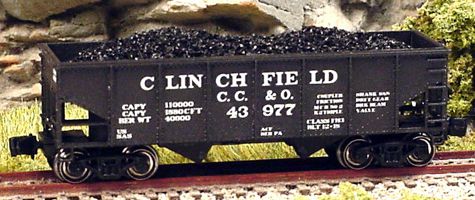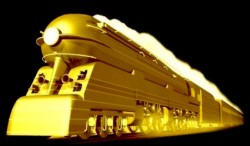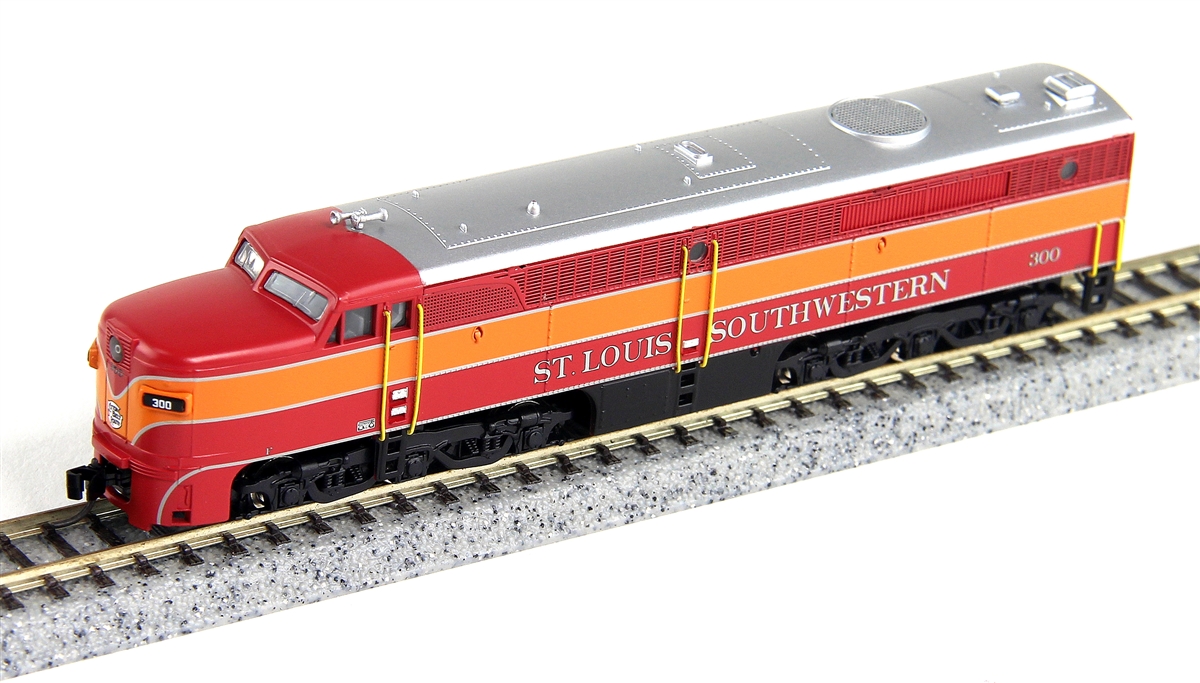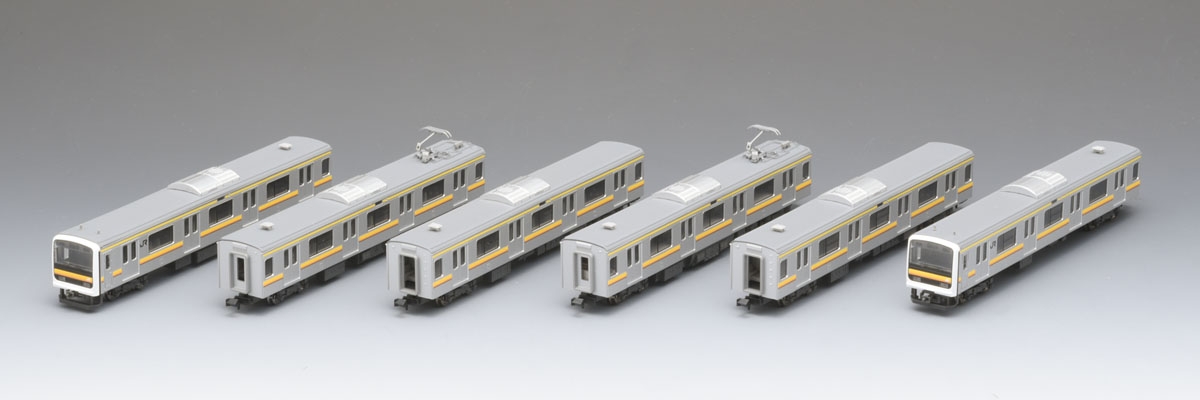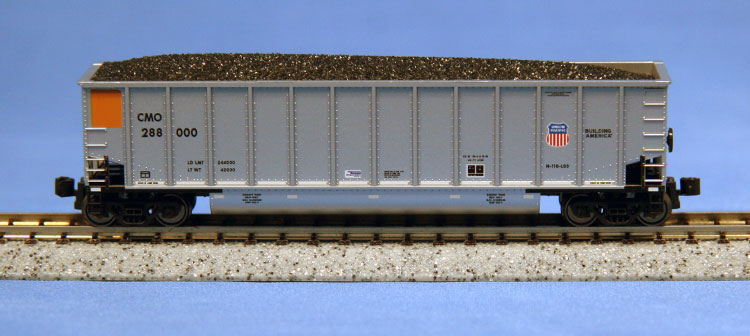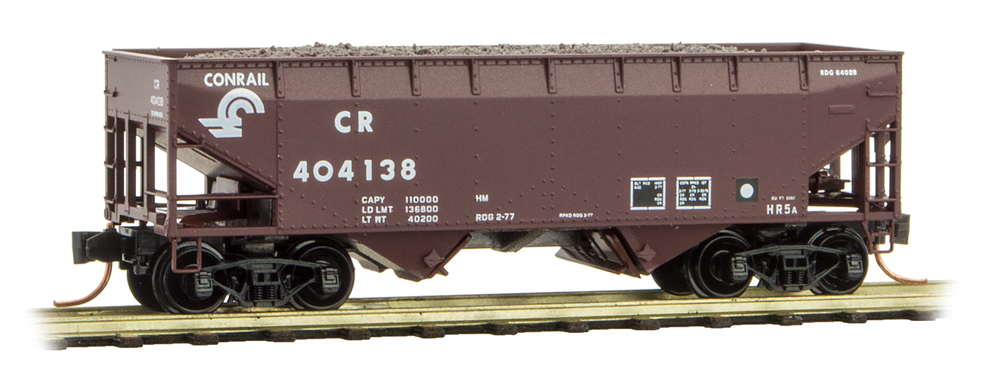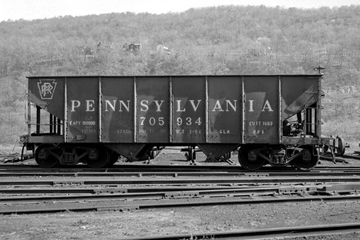Specific Item Information: Road Numbers: CC&O 43973 & 43978
Model Information: Some of the most common cars to ride American railroad tracks during the 20th Century, the small, steel-paneled, rib-side, two-bay hoppers were instrumental to the growth of our nation. During the Industrial Age of the USA, coal was King and our appetite for "black diamonds" was sated by these pert little dumpsters. An improvement over drop-bottom gondolas, the self-emptying, gravity-release hopper car became reality during the early 1900s, and fed the fires of our burgeoning economy until well after mid-century. While no longer used for large commercial hauling, these mighty-mites are all-pervasive and found on short-lines still lugging coal, gravel, ore, sand, glass and a variety of bulk materials—an invaluable workhorse even for our contemporary railroads. For your Z Scale enjoyment, Full Throttle presents a universal model of these small omnipresent twin-bay hoppers.
Prototype History: The open hopper is an evolution of the gondola, a simple freight car used for the transportation of various materials without and facility for protection from the elements. The hopper had higher sides than the gondola and possessed a mechanism on the bottom (bay doors) for discharging the load.
2-Bay ribside coal hoppers were in common use in the first half of the 20th century. The ribbed sides added stability so the loads would not bow out the side of the hoppers. Steel was in plentiful supply after the second world wars and these cars were pretty much everywhere coal was being produced or consumed.
2-Bay ribside coal hoppers were in common use in the first half of the 20th century. The ribbed sides added stability so the loads would not bow out the side of the hoppers. Steel was in plentiful supply after the second world wars and these cars were pretty much everywhere coal was being produced or consumed.
Road Name History: 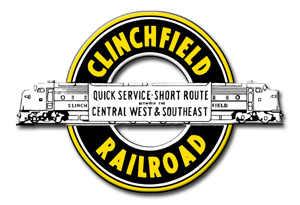 The Clinchfield Railroad (reporting mark CRR) was an operating and holding company for the Carolina, Clinchfield and Ohio Railway (reporting mark CCO). The line ran from the coalfields of Virginia and Elkhorn City, Kentucky, to the textile mills of South Carolina. The 35-mile segment from Dante, Virginia, to Elkhorn City, opening up the coal lands north of Sandy Ridge Mountains and forming a connection with the Chesapeake and Ohio Railway at Elkhorn City, was completed in 1915.
The Clinchfield Railroad (reporting mark CRR) was an operating and holding company for the Carolina, Clinchfield and Ohio Railway (reporting mark CCO). The line ran from the coalfields of Virginia and Elkhorn City, Kentucky, to the textile mills of South Carolina. The 35-mile segment from Dante, Virginia, to Elkhorn City, opening up the coal lands north of Sandy Ridge Mountains and forming a connection with the Chesapeake and Ohio Railway at Elkhorn City, was completed in 1915.
The Clinchfield was the last Class I railroad built in the U.S. east of the Rocky Mountains. The 266-mile railroad provided access to numerous scenic wonders of the Appalachian region and is probably best known for the state-of-the-art railroad engineering techniques applied in its construction, as exemplified by the Clinchfield Loops climbing the Blue Ridge Mountains north of Marion, North Carolina.
The Clinchfield Railroad began operating the line December 1, 1924, and for many years it was leased jointly by the Atlantic Coast Line Railroad and Louisville and Nashville Railroad. When the L&N merged with the ACL's successor, the Seaboard Coast Line Railroad, effective January 1, 1983, forming the Seaboard System Railroad, the separate operating company was unnecessary and was merged into the Seaboard. The line is now owned and operated by CSX Transportation as their Blue Ridge Subdivision (Spartanburg to Erwin, Tennessee) and Kingsport Subdivision (Erwin to Elkhorn City).
On October 15, 2015 CSX Transportation announced it was closing the Erwin yard facility, with a loss of 300 jobs. All through traffic trains would cease using the Clinchfield Route. Industries around Kingsport and Johnson City, TN would still be serviced by trains coming North from Spartanburg, SC and Bostic, NC, as would the Alpha Natural Resources coal preparation facility in McClure, VA by trains coming south from Shelbiana, Ky. Norfolk Southern would still use the line from St. Paul to Frisco, VA via a trackage rights arrangement with the CSX. The line between St. Paul and McClure (19.4 miles) would be idled immediately, effectively ending the use of the Clinchfield Route as a functioning bridge route between Spartanburg and Elkhorn City. It has been reported, however, that there have been instances of equipment running between Shelbiana, Ky and Dante, Va. The last time a train crossed the entire "North End" of the Clinchfield Route (from Elkhorn to Kingsport) was for the 2015 running of the Santa Claus Special, which happened in November 2015. It remains unclear as to the future of this rail line.

The Clinchfield was the last Class I railroad built in the U.S. east of the Rocky Mountains. The 266-mile railroad provided access to numerous scenic wonders of the Appalachian region and is probably best known for the state-of-the-art railroad engineering techniques applied in its construction, as exemplified by the Clinchfield Loops climbing the Blue Ridge Mountains north of Marion, North Carolina.
The Clinchfield Railroad began operating the line December 1, 1924, and for many years it was leased jointly by the Atlantic Coast Line Railroad and Louisville and Nashville Railroad. When the L&N merged with the ACL's successor, the Seaboard Coast Line Railroad, effective January 1, 1983, forming the Seaboard System Railroad, the separate operating company was unnecessary and was merged into the Seaboard. The line is now owned and operated by CSX Transportation as their Blue Ridge Subdivision (Spartanburg to Erwin, Tennessee) and Kingsport Subdivision (Erwin to Elkhorn City).
On October 15, 2015 CSX Transportation announced it was closing the Erwin yard facility, with a loss of 300 jobs. All through traffic trains would cease using the Clinchfield Route. Industries around Kingsport and Johnson City, TN would still be serviced by trains coming North from Spartanburg, SC and Bostic, NC, as would the Alpha Natural Resources coal preparation facility in McClure, VA by trains coming south from Shelbiana, Ky. Norfolk Southern would still use the line from St. Paul to Frisco, VA via a trackage rights arrangement with the CSX. The line between St. Paul and McClure (19.4 miles) would be idled immediately, effectively ending the use of the Clinchfield Route as a functioning bridge route between Spartanburg and Elkhorn City. It has been reported, however, that there have been instances of equipment running between Shelbiana, Ky and Dante, Va. The last time a train crossed the entire "North End" of the Clinchfield Route (from Elkhorn to Kingsport) was for the 2015 running of the Santa Claus Special, which happened in November 2015. It remains unclear as to the future of this rail line.
Brand/Importer Information: Greetings, I'm Will, a Fine Arts graduate of Kutztown University in Pennsylvania who grew up in the Delaware Valley. I worked for 30 years with the Pennsylvania German Folklife Society. For ten years I had a permanent booth, each month showing my "PA Dutch" wares, at the country's largest under-roof Antique Market in Atlanta, GA. When Mom and Dad started to have health issues, I was forced to give up the nomadic life, but during my travels I came to love Z Scale Model Railroading, as I could easily take small layouts with me to the motels and play with my trains in the evenings!
Now that Mom and Dad are gone, and after many years of providing care for my "Pappy" in Florida, I find myself a homebody in the "Sunshine State" with a neat little business, supplying interested Z hobbyists with rolling stock and unique quality products!
Item created by: CNW400 on 2021-08-26 10:30:34
If you see errors or missing data in this entry, please feel free to log in and edit it. Anyone with a Gmail account can log in instantly.
If you see errors or missing data in this entry, please feel free to log in and edit it. Anyone with a Gmail account can log in instantly.


